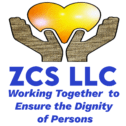Residential Habilitation

Residential Habilitation
Services provided to a person who needs support to live in the community. The services are provided in the person’s own home and community, and they are directed at increasing and maintaining the person’s physical, intellectual, emotional and social functioning. Residential habilitation includes assistance to develop, maintain or improve skills related to activities of daily living (ADLs). Services can be provided in three different ways
In-home Family Supports
Services provided to a person and their family (including extended family members) in the family’s home and/or in the community to enable the person to remain in or return to the home. This includes training of the person and family members to increase their capabilities to care for and maintain the person in the home.
Supported living services (SLS)
Services provided to a person who requires daily staff support for challenging behaviors, medical needs, physical needs and/or life skills. For people younger than age 18, SLS is provided to children who live outside of the biological or adoptive home.
A provider-controlled setting means a living setting that is owned or leased by the provider of services and is not under the control of the person.
People ages 18 and older
SLS – provider-controlled for people ages 18 and older may be provided in the following settings:
- CRS serving up to four people, including the person.
- Family foster care.
- A provider-owned apartment complex, condominiums, or townhomes.
- Community.
- Supervised living facility.
Assistance to develop, maintain or improve skills related to ADLs may include:
- Household chores (e.g., bed-making, washing dishes, laundry)
- Eating and food preparation
- Personal hygiene and cleanliness
- Social and adaptive skills necessary to help the person live in the community.
Increasing and maintaining the person’s physical, intellectual, emotional and social functioning may include:
- Self-care
- Communication skills
- Community participation and mobility
- Health care, leisure and recreation
- Household management
- Interpersonal skills
- Money management
- Increase of positive behavior and reduction or elimination of challenging behavior
- Sensory and motor development
- Socialization.
